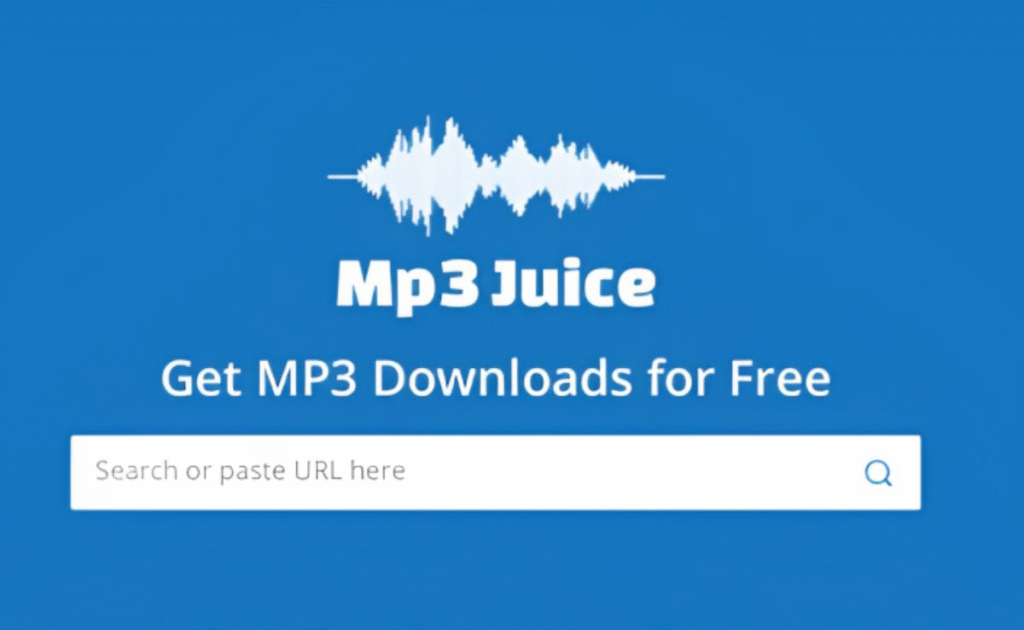
In the digital age, where music is just a click away, platforms like Mp3Juice have become go-to destinations for millions seeking free MP3 downloads. With a simple search bar, users can snag their favorite tracks from artists like Taylor Swift or Drake without shelling out for a Spotify subscription. But beneath this convenience lies a web of questions: Is it safe? Legal? And crucially, are your downloads trackable? If copyright holders, internet service providers (ISPs), or even the site itself can monitor your activity, what does that mean for your privacy and potential liability?
This article dives deep into the mechanics of Mp3Juice, exploring the technical, legal, and practical realities of trackability. We’ll unpack how downloads work, the risks involved, real-world examples, and steps to protect yourself. Whether you’re a casual downloader or just curious, understanding these layers can help you navigate the free music landscape more wisely.
What Is Mp3Juice and How Does It Operate?
Mp3Juice isn’t a traditional music streaming service like Apple Music or Tidal. Instead, it’s a free music search engine and downloader that aggregates links from across the web, primarily pulling from sources like YouTube videos. Users enter a song title or artist name into the search bar, and the site scans for matching audio files, often converting video streams into downloadable MP3 formats at bitrates ranging from 128kbps to 320kbps. No account creation is required, and downloads happen directly via your browser—no apps or software installations needed.
This model makes Mp3Juice incredibly user-friendly. As one review notes, it “simplifies free MP3 downloads with fast music search” and requires no registration. However, this ease comes at a cost. The platform doesn’t host the files itself; it acts as a middleman, redirecting users to third-party servers or embedding converters. This aggregation raises immediate flags about content origins—most tracks are copyrighted material ripped without permission.
From a functionality standpoint, Mp3Juice shines in accessibility. It supports searches in multiple languages, offers preview options before downloading, and works on desktops, mobiles, and even some tablets. But its reliance on external sources means variability: one day, a track downloads flawlessly; the next, it might lead to a dead link or, worse, a suspicious file.
The Technical Side: How Trackable Are Mp3Juice Downloads?
At its core, trackability boils down to data trails left during the download process. Let’s break it down step by step.
ISP Visibility: What Your Internet Provider Can See
Your ISP is the gatekeeper of your online traffic, routing data between your device and the internet. When you visit Mp3Juice and initiate a download, several elements become visible:
- Domain Access: ISPs log the websites you visit, including mp3juice.cc or its mirrors. They can see you’re connecting to a known music downloader, which might flag you for bandwidth monitoring or throttling if the site is associated with high-traffic activities.
- Traffic Patterns: Downloads involve large data packets—typically 3-10MB per song. ISPs can detect file sizes, transfer speeds, and types (e.g., audio files), but for HTTPS connections (which Mp3Juice uses), the exact content is encrypted. They won’t see the song title “Bad Bunny – Tití Me Preguntó” unless they employ Deep Packet Inspection (DPI), a controversial tool that scans payloads. DPI is rare for routine monitoring but can be activated if legally compelled, such as during copyright investigations.
- Direct vs. P2P: Unlike torrenting, where your IP is broadcast to peers (making tracking trivial), Mp3Juice uses direct HTTP/HTTPS downloads. This reduces peer-to-peer exposure but doesn’t eliminate ISP oversight. As experts explain, “An ISP can see all the data that flows through their system,” including downloads from web sources. In practice, ISPs rarely care about individual MP3s unless you’re a heavy user or the site is blacklisted.
Bottom line: Your ISP knows you’re downloading something from Mp3Juice, but pinpointing the exact track requires extra effort.
Site-Side Logging: Does Mp3Juice Track You?
Mp3Juice’s privacy policies—scattered across its various domains due to frequent domain hops—reveal standard web tracking practices. When you search or download:
- IP Address Collection: Logs capture your IP, device type, browser, and location for “optimization” and analytics. One policy states, “When you access the Service… your IP address, country of origin and other non-personal information” is recorded. Another adds that “Usage Data may include… Internet Protocol address.”
- No Personal Data, But Cookies and Ads: No email or login means less direct profiling, but third-party ads (ubiquitous on the site) deploy cookies and trackers. These can follow you across the web, building a profile of your interests. Free platforms like this “often track user activity” to monetize via ads.
- Data Retention and Sharing: Policies claim data isn’t sold, but it could be subpoenaed. In copyright crackdowns, logs become evidence. Mp3Juice doesn’t explicitly promise anonymity, and with servers in jurisdictions like Russia or the Netherlands, enforcement varies.
In short, Mp3Juice logs enough to identify repeat users if pressured, but it’s not actively hunting individuals.
Third-Party Sources: The Hidden Links
Downloads often redirect to external hosts (e.g., YouTube proxies). These can introduce additional tracking—YouTube logs queries if converted from its videos, and shady mirrors might inject malware that phones home with your details.
Legal Ramifications: Can Copyright Holders Come After You?
Mp3Juice treads a legal tightrope. While the site claims to follow DMCA guidelines by removing infringing links, most content is unauthorized rips of copyrighted works. Downloading such material violates laws like the U.S. DMCA or EU Copyright Directive, potentially leading to fines from $750 to $150,000 per song in civil suits.
How Copyright Holders Track Users
Major labels (e.g., Universal, Sony) don’t manually monitor every download. Instead:
- Site-Level Enforcement: They’ve shut down Mp3Juice clones before. In 2017, a coalition sued the original site, forcing a worldwide shutdown for “massive copyright infringement.” Operators face the heat, not users—yet.
- ISP Subpoenas: For high-profile cases, labels request user data via court orders. If Mp3Juice logs IPs, they could trace downloads. However, direct download sites are harder to police than torrents, where tools like peer monitoring catch thousands at once.
- User Reports and Scale: Prosecutions target uploaders or heavy sharers, not one-off downloaders. As one analysis puts it, Mp3Juice “operates in a legal gray area,” with risks more theoretical for casual use.
Real-world trouble is rare but real: Users in Germany and the UK have received settlement demands (€200-€1,000) for music downloads, often from sites like this.
Privacy and Security Risks Beyond Tracking
Trackability isn’t just about getting caught—it’s about exposure.
Data Privacy Concerns
Free sites thrive on ads, which harvest data. Pop-ups and redirects can install trackers revealing your search history (e.g., “romantic ballads” might infer personal tastes). Without robust privacy controls, this data fuels broader surveillance economies.
Malware Menaces
Downloads pose bigger threats than legal woes. Reports abound of infected files: “Mp3 Juice has been reported to have MP3s that are actually malware containing viruses.” Fake sites mimic Mp3Juice, luring users to phishing pages. Antivirus scans are essential, but prevention beats cure.
One user recounted: “I tried to download… from mp3juice, but the website looked a little off,” leading to unwanted software.
Real-World Cases and User Experiences
- 2017 Shutdown: Labels’ lawsuit highlighted how aggregators enable mass infringement, but users faced no direct backlash.
- Reddit and Quora Anecdotes: Forums buzz with warnings—”not safe” due to viruses—and questions like “Can MP3 juices cause a virus?” Consensus: Proceed with caution.
- 2025 Updates: Recent reviews praise speed but flag “legal risks due to unlicensed content” and “potential malware.”
Mitigating the Risks: Stay Anonymous and Secure
Worried? Here’s how to download smarter:
- Use a VPN: Masks your IP from ISPs and sites. Opt for no-logs providers like ExpressVPN.
- Ad Blockers and Antivirus: Tools like uBlock Origin and Malwarebytes block trackers and scans files.
- HTTPS Everywhere: Ensure the site uses SSL; avoid mirrors.
- Legal Alternatives: Switch to YouTube Music (free tier), SoundCloud, or Bandcamp for royalty-free tracks.
| Risk Factor | Trackability Level | Mitigation |
| ISP Monitoring | Medium (domain/file size) | VPN |
| Site Logging | High (IP/usage) | VPN + Incognito Mode |
| Copyright Enforcement | Low (for individuals) | Legal Sources |
| Malware | High | Antivirus + Trusted Links |
Ethical Considerations and the Future of Free Music
Beyond tech and law, Mp3Juice spotlights broader debates: Artists lose revenue from unlicensed downloads, stifling creativity. Yet, in regions with limited access, it’s a lifeline. As AI tools evolve, expect more sophisticated converters—but also stricter enforcement via blockchain tracking.
Conclusion: Proceed with Eyes Wide Open
Are Mp3Juice downloads trackable? Yes, to varying degrees—ISPs glimpse the surface, the site logs deeper, and copyright hawks lurk in the shadows. While the odds of personal repercussions are slim for light users, the combined risks of privacy erosion, malware, and legal gray areas make caution paramount. If convenience trumps all, layer on protections; otherwise, embrace ethical streaming for guilt-free grooves.
Ultimately, Mp3Juice democratizes music but at a hidden cost. Weigh your priorities, and download responsibly—or better yet, support the creators directly. What’s your take? Share in the comments below.
